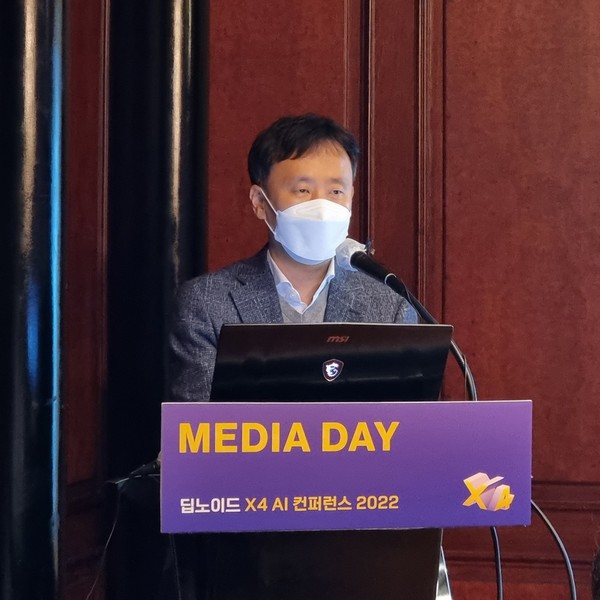“People talk about ‘three-minute treatments’ in medical fields. However, in reality, a one-minute treatment is not easy. Therefore, saving time in the medical field is becoming increasingly important. I expect our medical artificial intelligence (AI) solution to help make medical fields more efficient by aiding diagnosis.”
Deepnoid Inc. CEO Choi Woo-shik said so during a news conference at Grand Intercontinental Seoul PARNAS in Samseong-dong, southern Seoul, on Wednesday to celebrate the first anniversary of the company’s IPO.
At the press conference, Deepnoid introduced its medical AI solution, Deep AI Series.
Deepnoid has AI solutions, such as Deep Chest, which helps medical personnel make diagnostic decisions by detecting abnormal areas, including pulmonary sclerosis and pneumothorax) from chest X-ray images, and Deep Neuro, which detects abnormalities, such as brain aneurysms from the MRI images of the brain’s head and neck areas.
“A high-demand solution in the military is a lung nodule diagnosis assistance solution through chest X-ray analysis. It’s because there's a shortage of radiologists,” Choi said. "From next year, we plan to supply our Deep Chest solution to front-line military units in earnest."

Deepnoid is also the only Korean AI solution provider that has developed Deep Spine, which detects abnormalities, including compression fracture, angle of scoliosis, and intervertebral disc abnormality, in spinal MRI and X-ray images.
Besides, Deepnoid has recently obtained medical device manufacturing certification of DEEP: PACS PRO, a medical image storage and transmission system (PACS), from the Ministry of Food and Drug Safety. The company plans to provide a multi-disease detection solution by interconnecting its existing Deep AI solution series with DEEP: PACS PRO.
In the news conference, Deepnoid said it is preparing to apply for permission from the U.S. Food and Drug Administration to advance its AI solutions to global markets.
“Currently, we are providing coding training for medical professionals at Pusan National University Hospital and plan to expand training targets gradually. In addition, we will conduct coding training for medical students,” CEO Choi said. “We’re encouraged that our products are the first AI solutions experienced by future medical professionals.”
Choi added that the company is expanding its telemedicine, digital pathology, and video reading service business by conducting joint research and constructing AI solutions with major tertiary general hospitals in Korea.

